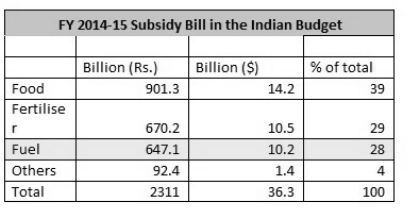
Sarath Davala
There are several terms that are in currency now in the Indian discussion. ‘Cash Transfers’, Direct Benefit Transfer’, ‘Basic Income’, and so on.
Cash Transfers
Cash transfers simply means transfer of cash. However, in the development sector the meaning is a bit more loaded. It refers to welfare assistance usually provided by any government to a particular group of people or a section of the society. It also means transfer of cash as opposed to transfer of goods or services. For instance, instead of directly disbursing subsidised fuel or food grains, the government may decide to transfer equivalent value in cash so that the recipient may purchase the goods in the open market. In terms of effectiveness, there are arguments both in favour of and against cash transfers.
Direct Benefit Transfer
Direct Benefit Transfer (DBT) is an initiative taken by the Congress government in 2013 to make the transfer of welfare benefits to the recipients transparent and more efficient. The purpose of DBT as defined by Government of India (GOI) is as follows:
“The purpose of Direct Benefit Transfer is to ensure that benefits go to individuals' bank accounts electronically, minimising tiers involved in fund flow thereby reducing delay in payment, ensuring accurate targeting of the beneficiary and curbing pilferage and duplication.[1]”
DBT has been implemented in stages across the country for a variety of welfare schemes. However, it has seen major success in the case of the LPG (Liquid Petroleum Gas) subsidy which is the subsidised cooking gas for domestic use. Prior to introducing DBT scheme, government used to provide subsidy directly to the oil companies, and in turn they would sell cooking gas to consumers at the subsidised price. The scheme, introduced in 2013 by GOI, stipulated that the companies sell gas to consumers at market price, and the government will directly transfer the subsidy to the bank account of the consumer. By means of DBT, the government has been able to save nearly Rs. 12,000 crores, i.e., about 1.9 billion US dollars. This is quite a substantial savings for the government.
The following table shows the volume of Indian government’s subsidy bill for the financial year 2014-15. Government sees DBT as a method by which it can save billions of rupees without affecting the end-beneficiary, and perhaps even benefiting them by means of eliminating the pilferage and corruption.
Recently, at a roundtable on “Direct Benefit and Basic Income Transfers” organised by the International Centre for Human Development in New Delhi, the Chief Economic Advisor to Government of India, Mr. Arvind Subramanian said: ‘By moving from a regime of subsidies to transfers, you liberate the market system to work more efficiently.’ According to him, the DBT scheme will allow the transfer of benefits in a leakage-proof, targeted and cashless mode. ‘It is above all a way of improving the life of the vulnerable and the poor.’[2]
DBT however requires a robust banking infrastructure and hundred percent financial inclusion. The LPG could succeed to such an extent primarily because bulk of the LPG consumers are urban-based.
Basic Income
Basic Income however is different. The term comes more from a rights perspective. Those who advocate Basic Income contend that every individual in the society must be entitled to a basic income so that he / she can access the basic material requirements of life. This income should be given to all citizens without any work requirement or means test. In other words, by definition, basic income should be given unconditionally. Other terms that are used which are similar to basic income are: Citizens’ Dividend, Guaranteed Minimum Income, Basic Income Guarantee, Unconditional Cash Transfer, and so on. More on these copncepts later.
The point is that Basic Income is indeed different from Direct Benefit Transfer. DBT is a solution concerning delivery alone. The system unclogs the pipes that deliver welfare benefits to the poor. The infrastructure that DBT provides is an excellent first step towards introducing Basic Income in future.
----------------------------------------------------
[1] http://www.dbtmis.planningcommission.nic.in/dbtentry/homepage.aspx
[2]http://www.financialexpress.com/article/economy/direct-benefit-transfer-a-game-changer-arvind-subramanian/93607/
